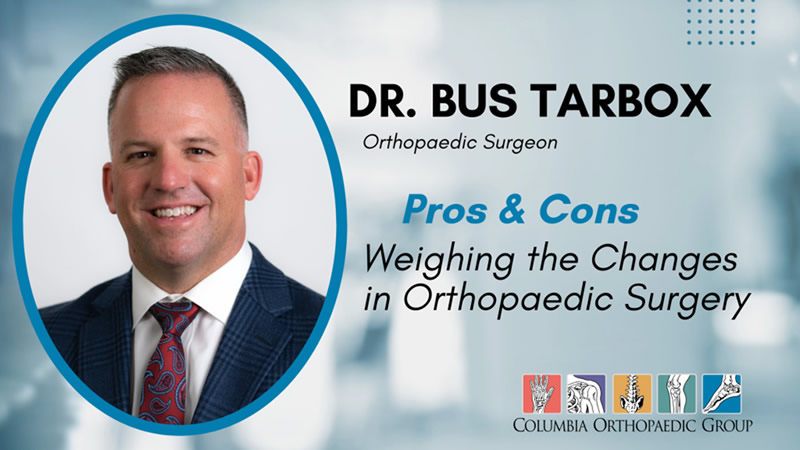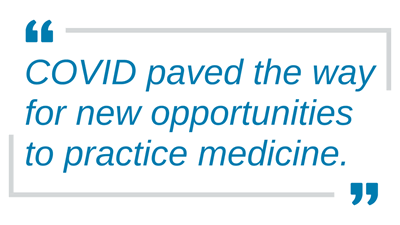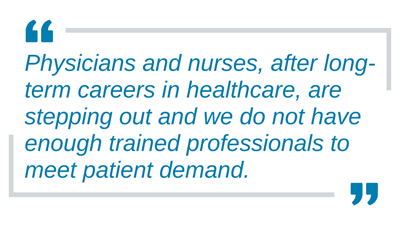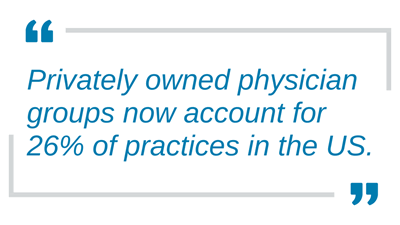
Weighing the Changes in Orthopaedic Surgery
Bus Tarbox, MD, MBA, Orthopaedic Surgeon at Columbia Orthopaedic Group joined the Becker's Hospital Review podcast to discuss his insights on what surgeons are excited about today, using virtual health in sports medicine, and meeting the patient in preferred settings.
Take a look at what Dr. Tarbox has to say – and how you might benefit from these new changes to orthopaedic surgery.

Q: What are you most excited about right now in your field?
A: "What excites me is what we learned out of COVID. COVID paved the way for new opportunities to practice medicine. Many surgeries were moved from the hospital to outpatient surgical centers. Now we are seeing that trend stay with increased patient outcomes, as many patients recover at home better. Plus, outpatient surgical centers help to eliminate negative health exposure due to these smaller 'boutique' settings.
"We also saw increases in virtual care. Telehealth and virtual therapy became a necessity to evaluate patients without bringing them into the office. The challenge in sports medicine has been evaluating the patients in person. What we have found to be helpful is MRI follow-ups and sharing our screen with patients. We also have found post-op visits and virtual healthcare (Force Therapeutics) to work well with virtual care. Patients like avoiding the time and saving money on gas for travel.
"We've also seen shifts in patients who have become more comfortable using their iPhones and computers. Utilizing technology to communicate with patients is something we have our eye on and we're constantly looking for ways to meet the patient in their setting whenever possible."

Q: What challenges do you see ahead?
A: "Nursing and labor shortages. Physicians and nurses, after long-term careers in healthcare, are stepping out and we do not have enough trained professionals to meet patient demand.
"We are also seeing a shift from physicians to insurance companies on how we treat patients. Insurance companies now have more power in treatment options for patients than physicians do. What hasn't changed is who's responsible for the treatment plan. Pre-approvals and staffing to coordinate with insurance companies are time consuming."
Q. How are you looking at growth in the next two years?
A. "Private practice physician groups now account for only 26% of practices in the US [a decrease from last year's 29.7%, which was an already decreasing percentage since the start of the pandemic]. If we're going to remain in the private sector and not be controlled by these big, public healthcare systems, we need to look at collaboration with surrounding communities and groups. We're starting to see this happen across the country, and if we can continue to collaborate and grow together, we can help resist some of the other negative changes that have been popping up.

There are also benefits to the patient for not being controlled by the public healthcare systems. Through COVID and healthcare turning virtual, we're continually able to find ways to increase the relationships and overall care with our patients, using new models to meet the patients in the setting they want to be met in."
The world of orthopaedic surgery – and healthcare in general – is constantly evolving, featuring lots of twists and turns, good changes and less-than-savory ones. Particularly in the last few years, we've seen healthcare evolve immensely. But that doesn't mean it has to be harder to navigate. At Columbia Orthopaedic Group, we're here to help make your healthcare experience as effortless as possible. And, like Dr. Tarbox said, we're constantly finding new ways to meet you, our patients, where you're at, and help you on your healthcare journey.
If you want to hear more from Dr. Tarbox on the recent evolution of orthopaedic surgery, listen to the full podcast online at Becker's Hospital Review, LinkedIn or Twitter.
Meanwhile, for more information about Columbia Orthopaedic Group, visit our website; or to book an appointment with one of our physicians, visit our appointments page.
